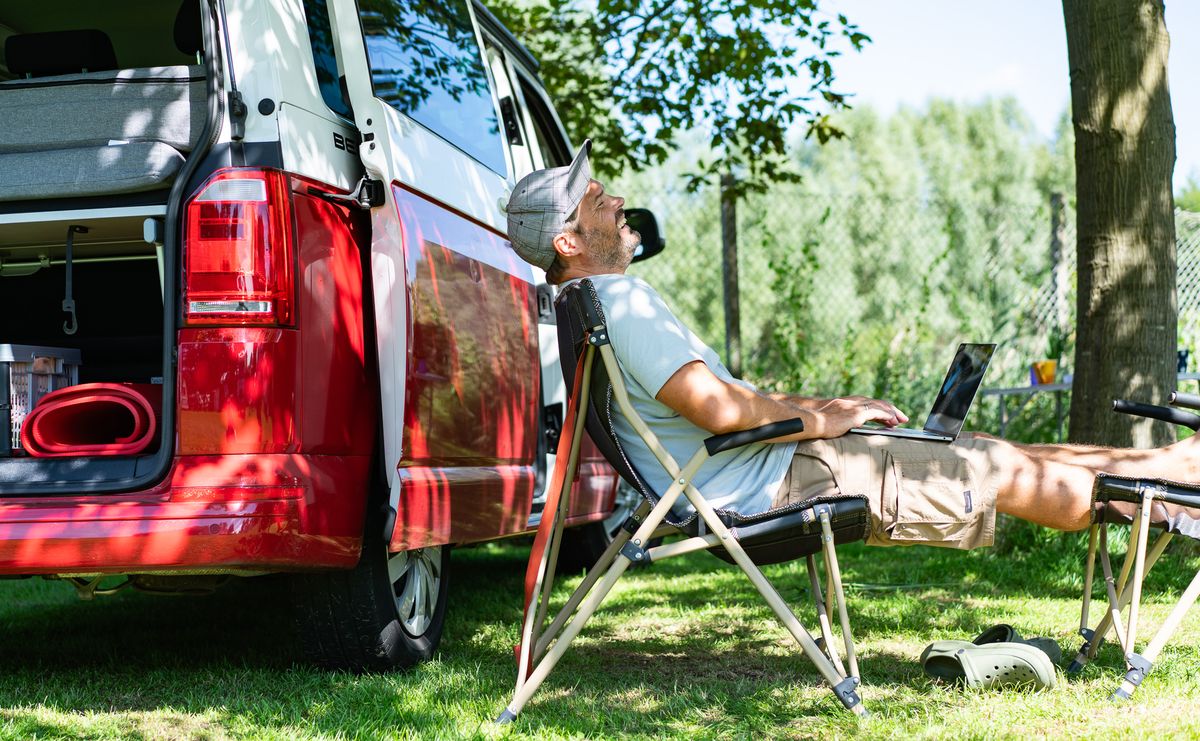We are all trying more and more to live a more sustainable life. This trend has also reached the camping world, so we have selected 7 sustainable travel tips for and with your camper that you can easily implement.
According to a study on CO2 emissions, camping holidays are more environmentally friendly than most other types of holidays and with these good tips your next camping holiday can be even more environmentally friendly.
1. Waste separation
Every country organizes waste separation differently, but you can get good information about this at the campsites and have already made a good contribution. You can also pay attention to the type of waste bin, for example one made of recycled materials. With the Flextrash bins made of recycled PET bottles, waste separation is much more fun on campsites or parking spaces. For example, you can have a large yellow 9L Flextrash bin for plastic waste and a 5L bin in ocean green for residual waste. The type of attachment can be very different, from a Campstick that is simply stuck into the ground to the VacuClip on smooth surfaces such as the outside wall of a caravan or motorhome.
2. Toilet additives & cleaning products
When choosing cleaners, cleaning products and toilet additives, it is a good idea to use biodegradable products, as these do not affect the effectiveness and are a much smaller burden on the environment. Solbio is ideal as a toilet fluid for camper toilets. The sanitary fluid is 100% biodegradable. The 100% plant-based ingredients give you a fresh scent combination of eucalyptus and mint oil, which is also gentle on the environment.
3. Environmentally friendly campsites
There are so many beautiful campsites. When choosing, you can look for different seals such as "climate-friendly operation" or "eco-camping" . You can also go to smaller campsites, as these have less of an environmental impact. Feel free to take a look.
4. Sustainability in food
When it comes to food, there are many different ways to make it more sustainable. This starts with camping dishes , as there is the option of using recycled materials and melamine-free alternatives. In fact, the range is growing and there are more and more manufacturers who make their camping plates and camping glasses from different sustainable materials.
The food can be easily purchased at local markets, reducing plastic and supporting the local market at the same time.
Conscious consumption of meat can also have a significant impact on the ecological footprint.
5. Solar panels
Solar panels on the roof of a caravan or motorhome are of course one of the biggest investments for a sustainable camping trip. In addition to the sustainable aspect, there is also a mobile aspect, as you are no longer dependent on shore power from the campsites and can therefore make your trips with the camper much more self-sufficient. For all those for whom permanently mounted solar panels on the roof of the camper are too much effort, there are foldable solar modules as an ideal alternative.
6. Save fuel
Fuel-efficient driving
An easy way to drive in a fuel-efficient manner is to save weight. In addition to packing sparingly, you can only fill the camper's water tank a little before the trip and empty the waste water tank before the journey home. Less weight reduces consumption.
Shopping
You can also save weight by not packing provisions for the entire trip but by shopping locally, which also supports local shops and markets.
Short distances
If you are a cyclist and take your bikes with you on holiday, you can easily cover short distances around your campsite by bike and thus save fuel and CO2 .
7. Share
Do you have other camping enthusiasts in your circle of friends? You could buy larger items together, such as a bike rack, and save resources and money.
With these seven tips, you can do something good for the environment without much effort and still enjoy your camping holiday to the fullest.



